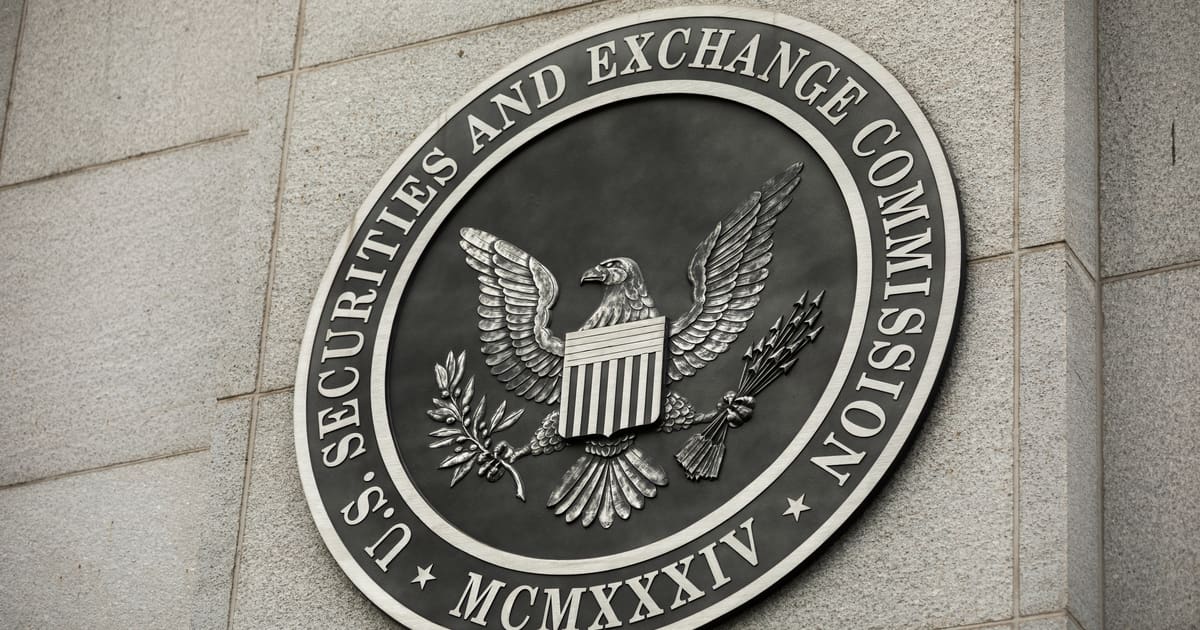The US SEC Charges DeFi Money Market and Founders with Fraudulent $30 Million Offerings
Nicholas Otieno Aug 07, 2021 23:59
The US Securities and Exchange Commission has issued its first case involving the decentralized finance market by charging the founders of DeFi Money market for raising $30 million through fraudulent offerings.

The US Securities and Exchange Commission (SEC) has filed its first-ever case involving DeFi decentralized finance technology. 
Last Friday, August 6, the US regulator charged two Florida men and their company for failing to register sales of more than $30 million of securities and for misleading investors in the case involving decentralized finance securities.
Blockchain Credit partners operated DeFi Money Market (DMM), a decentralized finance protocol, in which they claimed the platform tried to bring real-world assets to the DeFi sector.
Similar to other DeFi protocols, DMM enabled users to build completed trades, which run on the Ethereum blockchain. DMM also operated a yield farm that allowed users to lend coins as mTokens and earn as DMG governance tokens.
The SEC claimed that the company DMM and its owners, Gregory Keough and Derek Acree, sold the two digital tokens to US investors by registering their illegal $30 million securities offering.
The SEC alleged that the offering did not comply with scrutiny since the regulator considered the mToeksn and DMG tokens as securities. The regulator claimed that the company's founder should have registered the company with the SEC as a broker-dealer.
The SEC narrated that the founders created a DeFi Money Market Fund that provided more than 6.5% interest on specific staked assets backed by real-world secured car loans. The DDM company allowed investors to purchase the two tokens with more mainstream crypto-assets like Ether, guaranteeing that any principal plus interest could freely be redeemed at any time.
But the SEC’s investigations showed that DDM operations realized that their business was unable to generate yields to the customers as promised because of the price volatility of the digital assets. The profits of income-generating assets were inadequate to cover the appreciation of investors’ funds.
Instead of notifying investors of such problems, the SEC revealed that the business founders misrepresented their business model, including falsely claiming that DeFi Money Market purchased car loans.
According to SEC’s investigations, the founders launched the project in February 2020 and operated for a year when it saw its permanent shutdown in February 2021.
The regulator charged DeFi Money Market and its founders with facilitating trades of assets considered as securities without following the required procedures outlined by authorities.
The SEC imposed financial penalties against the founders and include undertakings to compensate harmed investors who bought tokens in the illegal offerings. Keough and Acree did not admit nor deny the allegations but agreed to pay civil penalties of $125,000 each and to give up $12.8 million in ill-gotten gains as part of the cease-and-desist order agreed with the SEC.
The Regulator’s Recent Insights on DeFi, Crypto Sector
The US SEC’s enforcement against the DeFi platform “DeFi Money Market” came a few days ago when SEC chairman Gary Gensler called on lawmakers to give the regulator more power to oversee crypto lending and DeFi sites.
From stock tokens to DeFi, the SEC chair issued a sweeping and damning claim on August 3 that the crypto asset class is "rife with fraud, scams, and abuse in certain applications."
Gensler, who was sworn in as SEC chairman earlier this year after being nominated to the position by President Biden, vowed that the regulator would use its power and even pursue more powers through Congress to prevent crypto platforms, products, and transactions from falling between regulatory cracks.
Gensler stated that there is no adequate investor protection in the cryptocurrency landscape, describing it as the Wild West. He, therefore, said that if regulators don’t address such issues, then lots of consumers will be hurt.
Image source: Shutterstock.jpg)
